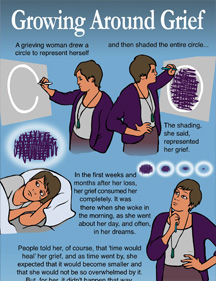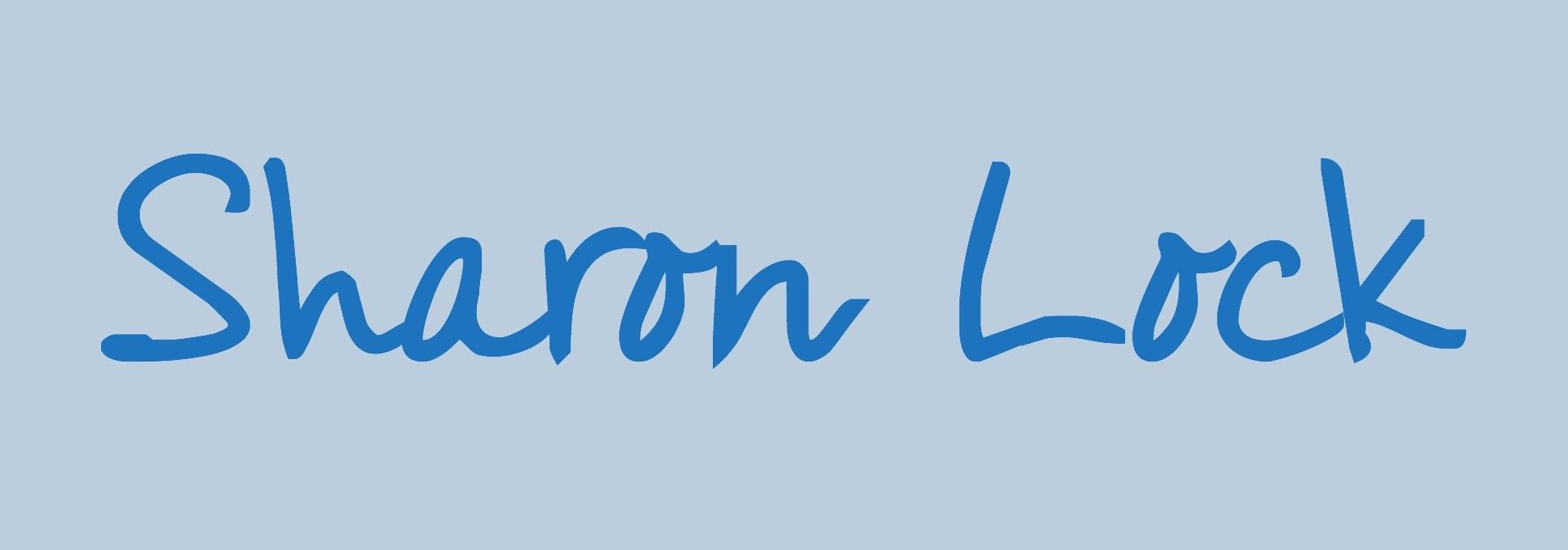Yesterday, 6th June was the anniversary of my Dad’s death.
Having recently attended the most amazing workshop facilitated by Elizabeth Gilbert, most well know as being the author of Eat, Pray, Love, I feel a deep connection to her. Her workshop was based around her most recent book ‘Big Magic.’ I have always felt a deep connection to Liz and to her work, she is my favourite author, and I feel aligned with her thoughts and her wisdom in a very profound way.
Liz shared how difficult it was for her to be there on stage having recently lost her partner Rayya to terminal cancer. She was due to facilitate the workshop last May 2017 but cancelled for that reason. As a result there were people from all over Europe and beyond who attended this time, it was her only European date. It was an amazing day, very special, and I felt so blessed to have experienced it.
Yesterday Liz posted a heartfelt Facebook post on the anniversary of her and Rayya’s commitment ceremony, sharing how she is coping with her grief and what she is learning from it. It was very poignant that she shared it on the anniversary of my Dad’s death and I felt moved to comment and to share something I came across recently that really helped me to see grief in a different way. Rather than write about it I’ll share her beautiful post and my response.
Liz Gilberts words…
I AM WILLING
Dear Ones:
This picture of me and Rayya was taken one year ago today.
This picture was taken on the morning of our commitment ceremony — a day on which we bound our hearts to each other forever, in front of a small circle of friends.
What does “forever” mean, when one of the lovers has terminal cancer?
That’s simple: It means FOREVER.
Six months ago this week, Rayya died.
People keep asking me how I’m doing, and I’m not always sure how to answer that. It depends on the day. It depends on the minute. Right this moment, I’m OK. Yesterday, not so good. Tomorrow, we’ll see.
Here is what I have learned about Grief, though.
I have learned that Grief is a force of energy that cannot be controlled or predicted. It comes and goes on its own schedule. Grief does not obey your plans, or your wishes. Grief will do whatever it wants to you, whenever it wants to. In that regard, Grief has a lot in common with Love.
The only way that I can “handle” Grief, then, is the same way that I “handle” Love — by not “handling” it. By bowing down before its power, in complete humility.
When Grief comes to visit me, it’s like being visited by a tsunami. I am given just enough warning to say, “Oh my god, this is happening RIGHT NOW,” and then I drop to the floor on my knees and let it rock me. It’s a full-body experience. To resist it is to be brutalized by it. You just bow down — that’s all you CAN do — and you let this thing roll through your heart and body and mind, in all its vehemence.
How do you survive the tsunami of Grief?
By being willing to experience it, without resistance. By being willing to feel everything. By being willing to accept the unacceptable.
The conversation of Grief, then, is one of prayer-and-response.
Grief says to me: “You will never love anyone the way you loved Rayya.”
And I reply: “I am willing for that to be true.”
Grief says: “She’s gone, and she’s never coming back.”
I reply: “I am willing for that to be true.”
Grief says: “You will never see her walk in the door again.”
I say: “I am willing.”
Grief says: “You will never have access to her wisdom again.”
I say: “I am willing.”
Grief says: “You will never hear that laugh again.”
I say: “I am willing.”
Grief says, “You will never smell her skin again.”
I get down on the floor on my fucking knees, and — and through my sheets of tears — I say, “I AM WILLING.”
I am beginning to understand that Grief is not the same thing as Depression. Depression is unwilling. Grief is a MOVEMENT — catastrophic and mighty — that you ALLOW to rock you and spin you. Depression is refusal to feel. Depression is a refusal to move, or to be moved. Depression is resistance, and resistance is futile.
I am not depressed, in the wake of Rayya’s death. I am DESTROYED, but I am not depressed — but that’s only because I am willing to be destroyed.
I will live on, because I am WILLING. I am willing to take this life on God’s terms, not mine.
Love’s terms, not mine.
Grief’s terms, not mine.
I am willing to surrender to the reality that I will never understand any of this. I am even willing to accept that I may not ever fully heal from the loss of Rayya.
Grief says: “You may never recover from this”
And I say: “I am willing.”
This is the job of the living — to be willing to bow down before EVERYTHING that is bigger than you. And nearly everything in this world is bigger than you. Let your willingness be the only big thing about you.
My friend Martha Beck officiated the commitment ceremony last year for me and Rayya. I will never forget what she said on that day: “True love always liberates the beloved.”
Six months ago, I had to let Rayya go. It wasn’t up to me. It was brutal, and I was willing. I bowed down and wept. God’s will, not mine. But Rayya belonged to God before she belonged to me. She NEVER belonged to me, actually; I just loved her. And true love always liberates the beloved.
I am willing.
Two days ago — on the six month anniversary of Rayya’s death — Martha wrote me a letter. She said, “The spark of absolutely unique, inimitable energy that showed up as Rayya is no longer in form. I can’t wrap my head around it. What is she doing now? What is she BEING now? Death is every bit as common as life, and both utterly baffle me.”
Me, too. I am completely fucking baffled. I don’t understand Life any more than I understand Love or Death or Grief.
But I am willing to be here for the duration of the mystery. I am willing to be rocked by every last tsunami.
I don’t know what Rayya is doing or being now. That is not for me to know. I only know that I will love her forever. And I know what I am doing and what I am being:
I am willing.
Onward,
LG
Beautiful words and in Liz’s inimitably wise way she is helping thousands of people by being willing to share her experience in all it’s rawness. I felt moved by her words and I felt moved by the thousands of stories and experiences shared in response to her words by beautiful people navigating their way through their own experience of grief. Some had lost parents, some had lost children or partners, it was a wave of sharing of individual loss and also of support and love. I felt moved to contribute.
My response..
Liz,
Your words so beautifully translate my experience of grief.
Today is the anniversary of my Dads sudden passing, the 6th June 1990. I was 18yrs old and he was only 49.
I have now lived longer without him than with him in my life. He wasn’t there to give me away at my wedding, nor was he there after the birth of both of my beautiful boys. He wasn’t there to hold them or to play with them or to teach them what he knew… (Not with his physical presence anyway, I believe he is always around us in spirit). Those painful markers of loss and the waves of longing and grief. For many years I was not willing, grief was a messy fight, I pushed, it pushed back, the tsunami took me under on more than one occasion. Each time I came up for air I learned to resist a little less, breathe into it a little more. It was a process of learning and surrendering.
But, then the healing began, as I surrendered the healing gently guided me. When I was ready and willing to feel it, to be with it, I opened up to my future life without my Dad in it. I was willing to live again. I’ve experienced more loss and grief since then, it’s part of life and we can’t avoid it. One of the most difficult was my miscarriage. I have learned to lean into those feelings. They never go away.
I recently came across Tonkin’s model of grief and it made some sense to me. Reflecting back after what is now 28yrs without my Dad. I realise that you grow around grief as Tonkin’s model suggests.
Grief does not get smaller but life grows around it.
I hope it’s also useful to share for others here too.
My journey through grief led me to the work I do today supporting others. That is the gift that grew from my own pain.
Love to all of you navigating grief of any kind right now ![]() ❤️
❤️![]()
Tonkin’s model of grief –
In essence, Tonkin’s model of grief challenges the idea that ‘time heals all wounds’ or that grief disappears with time. Indeed, if you have recently lost a loved one, you might feel as though it is impossible to ever move on from grief. Dr Tonkin suggests that this is because we do not move on from grief, but grow around it.

Growing around grief
Imagine drawing a circle to represent yourself. This is you, your life and everything you’re experiencing. Now you shade in the circle to represent your grief.
The result is a circle, almost entirely shaded. This is you and your grief; it may be entirely consuming your life. You may feel unable to eat or sleep, or find yourself struggling to think about anything else.
What happens in the following days, months and years is important. Rather than the shaded area growing smaller, the outer circle (representing you) begins to grow bigger. The result looks somewhat like a fried egg, with the white representing your life and the yolk representing your grief – this is why this model of grief is sometimes referred to as the fried egg model.
Tonkin’s theory of grief suggests that over time, your grief will stay much the same, but your life will begin to grow around it. You will have new experiences, meet new people, and begin to find moments of enjoyment. Slowly, these moments may grow more frequent and the outer circle will grow a little bigger.
Eventually, there will be a much larger circle, with the same size shaded area – but the grief is not as dominant overall. This is why Tonkin’s model of grief is called growing around grief.
This does not mean the grief disappears. It will probably always be there, and may even grow a little bigger at difficult times. But it no longer completely dominates the circle.
Credit:
Liz Gilbert
Dr Lois Tonkin
Photo – Greg Ortega (unsplash.com)
